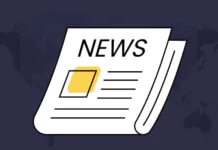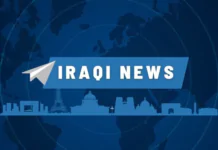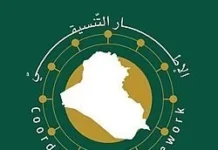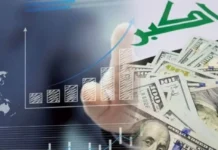Gold Reserves
Economic 04/20/2025 Mohammed Sharif Abu Maysam Amid the ongoing tensions in the world and the Middle East, purchasing gold is among the most important options for diversifying monetary reserves.
This is crucial to counteracting political fluctuations that directly and indirectly impact the economy and the inflationary situation, which impacts overall market prices, including exchange rates and the prices of goods and services. This is a key element in ensuring a significant national security instrument.
Gold is economically known as a safe haven against the volatility of currencies and prices in energy and other commodity markets under complex circumstances.
Accordingly, the components of monetary policy in our country (which was and still is under the influence of international and regional factors and variables, in addition to a set of internal data and speculation that is constantly returning to the forefront to have a significant impact on market movement and monetary stability) are in dire need of diversifying reserves and increasing their savings in gold,
which is distinguished from other reserves by its ability to maintain its material value under various circumstances.
The Central Bank of Iraq‘s recent announcement that Iraq possesses one of the highest gold reserves among Arab countries, at 162 tons, had a positive impact on observers and the general public.
It had a positive impact on public opinion on the street, increasing the confidence of the banking public and those following monetary policy.
This, in turn, establishes a public opinion that trusts the local currency and the national economy.
It is well established that gold has an advantage when compared to paper currency, which has no fixed assets.
This gives the national economy a high degree of stability and reliability, even in the event of shocks resulting from changes or decisions issued by international bodies that attempt to link the Iraqi economy to their own decisions.
The greater the gold reserve compared to cash reserves (which are supposed to be diversified),
the greater the ability of the person in charge of monetary policy to ward off any risks that may befall the economy,
while also activating the role of other real sectors and increasing their contribution to the gross domestic product.
In the context of our ambitions,
we hope that Iraq will occupy a prominent position on the list of countries with rising gold reserves.
This position not only provides monetary policymakers with flexibility in decision-making,
but also contributes to providing the overall economy with a buffer against anticipated economic problems amid the fluctuations witnessed in our region and the world.
It also strengthens national security, which is linked to economic security. https://alsabaah.iq/113123-.html
Government Banking Reforms And Their Role In Bypassing Sanctions… A Banking Researcher Explains.
April 16, 2025 Baghdad/Iraq Observer The Iraqi government, in cooperation with the Central Bank of Iraq, has prepared a plan of (3) main objectives in cooperation with an American consulting company, (Olver & Amin), to
reform and modernize the banking sector, with the aim of
enhancing the protection of depositors and creditors and
improving confidence in the sector, after difficulties related to the transfer of funds and American restrictions.
After the sanctions, the term “messaging accounts” emerged.
Mustafa Hantoush, an expert in financial and banking affairs, confirms that private banks have faced major problems, most notably US sanctions, which necessitated a detailed study to change the situation affecting these banks.
Speaking to the Iraq Observer, Hantoush said, “Regarding the private banking sector, which has faced problems over the past three years related to US sanctions, the term ‘correspondent accounts’ emerged as Iraqi banks faced operational disruptions, and the state attempted to address the situation in collaboration with an American consulting firm called Oliver & Amin.”
He added, “The American firm Oliver & Amin conducted studies on sanctioned Iraqi banks over a five-month period and submitted a three-point report, the first of which is that companies with real capital can develop themselves and circumvent sanctions by opening future accounts with JPMorgan.”
He continued, “While there are private banks that lack the necessary capabilities, they are merging with international banks, which is a step available to them.” He added, “Regarding the third point, which concerns banks facing liquidity problems, they may face collapse and exit the sector.”
He pointed out that “the steps to amend (government banks) have begun to accelerate towards the step of establishing Rafidain and Rashid Banks, but the special nature of these banks remains that they have large international obligations, including those related to debts during the Iran-Iraq war.
However, at the same time, a huge bank will be formed through these banks, stronger than the TBI, and
it will be the hand of the new state to enter into banking operations.”
The person in charge of financial and banking affairs stated that “the government established the First Rafidain Bank, which contributes 24% to the state and 76% to the private sector.”
Prime Minister Mohammed Shia al-Sudani had previously sponsored the Iraqi Banking Sector Reform Conference, emphasizing that the government assumed responsibility amid a complex economic climate that required measures to achieve stability and ensure growth.
He pointed to the achievements made in the financial, banking, and economic sectors,
which represented positive steps toward establishing a solid foundation for development and investing in stability. https://observeriraq.net/الاصلاحات-المصرفية-الحكومية-ودورها-ب/
The Central Bank Concludes Its Session On The Basel Committee’s Decisions.
April 21, 2025 The Banking Studies Center at the Central Bank of Iraq concluded its course on the Basel Committee’s decisions and the Self-Assessment of Capital Adequacy (ICAAP) in accordance with the second pillar of Basel (3) decisions.
(53) trainees from the departments of Finance, Risk, Internal Audit, Credit, and Compliance in a number of Iraqi banks participated in the course.
The training program for the participants included a complete vision of the Basel Committee’s decisions (3), especially the second pillar of those decisions related to the
self-assessment of capital adequacy, as well as identifying the practices related to calculating (ICAAP)
to reach an understanding of the skills of assessing capital adequacy.
Central Bank of Iraq Media Office April 21, 2025 https://cbi.iq/news/view/2858
Tax Reform: A Step Towards Diversifying Revenues And Achieving Justice.
Economic 04/16/2025 Baghdad: Nour Najah Abdullah Given the economic challenges facing the country, tax reform is at the top of government policy priorities.
It is a crucial step toward reducing reliance on oil revenues, which continue to constitute the backbone of the general budget.
Although tax revenues in Iraq do not exceed 1 to 2 percent of GDP—a low figure compared to international standards—
there is broad consensus among experts on the need to move forward with comprehensive and radical reforms that will contribute to building a fair, effective, and balanced tax system.
Financial and economic experts believe that the starting point for reform is to expand the tax base to include all economic activities, whether in the formal or informal sector, while ensuring that the liberal professions and the service and commercial sectors contribute to the public treasury.
This requires a comprehensive update of taxpayer records, through the creation of an accurate central database encompassing individuals, companies, and institutions, enabling the tracking of income and the accurate and transparent assessment of tax liabilities.
Experts stress the importance of adopting a progressive tax system that imposes higher rates on high-income and large-profit individuals, while granting tax exemptions or reductions to low-income families and individuals.
This is intended to achieve social justice and reduce the economic gap between social classes.
Amending Income Tax Law No. 113 of 1982 is also urgent, given its outdated provisions and their failure to keep pace with the economic and financial transformations that Iraq has witnessed over the past decades.
Speaking to Al-Sabah, economic expert Nabil Jabbar Al-Tamimi argues that true reform can only be achieved through a radical change in the legislative and institutional structure.
He calls for rewriting tax laws to align with the nature of the contemporary Iraqi economic system, and for the establishment of a new authority built from scratch and managed by young cadres who have never worked within the traditional tax system, but rather possess academic qualifications and experience in global tax systems.
Al-Tamimi also emphasizes the need to fully automate the system and utilize technology in all aspects of the process, from assessment to collection, to enhance efficiency and transparency and reduce the opportunities for manipulation and corruption.
For his part, economic expert Ziad Al-Hashemi told Al-Sabah that the most prominent challenges facing the tax system in Iraq are the outdated legislation and administrative mechanisms in place, which have led to weak tax coverage and declining collection efficiency.
He believes that modernizing the system requires simplifying procedures, increasing the efficiency of staff, developing internal oversight tools, and enhancing transparency in the relationship between citizens and the state, which will reduce tax evasion rates and increase voluntary compliance.
Financial expert Safwan Qusay points out that tax justice cannot be achieved without accurately digitizing and documenting income across various sectors, including agriculture, trade, and services, while raising exemption limits for individuals and poor families to protect them from the negative effects of the reform.
He suggests tracking the bank accounts of companies and individuals to verify sources of income and spending patterns, which would contribute to building a clear picture of taxpayers’ financial solvency. In a statement to Al-Sabah,
he called for linking the tax to citizens’ desires for public spending, so that a percentage of it would be directed to specific sectors such as education or health, based on the taxpayer’s choices.
This would enhance community oversight and confidence in the effectiveness of the tax system.
In contrast, Mazhar Mohammed Saleh, the Prime Minister’s advisor for financial affairs, confirms that the government has already launched eight tax reform packages, the most important of which are the
introduction of new segments of market forces that previously evaded taxes, and the adoption of electronic collection to reduce friction between citizens and employees.
Saleh compares Iraq to countries like Denmark, where income tax amounts to approximately 46 percent of GDP.
This explains the ability of those countries to fund high-quality education, health, and social security.
In Iraq, this percentage does not exceed 2 percent, reflecting the fragility of the tax base and the continued overreliance on oil revenues.
Saleh points out that the government’s program aims to increase non-oil revenues to 20 percent of total public revenues in the near future, up from the current rate of only about 7 percent.
This will be achieved by expanding the taxable population, adopting modern technological systems, and amending legislation, including the Income and Property Tax Law, which has not been updated in more than four decades.
Despite the clarity of the reform vision and the multitude of initiatives, challenges remain, most notably the lack of trust in tax institutions, the inadequacy of technical infrastructure, and the absence of a culture of voluntary compliance among broad segments of society.
Furthermore, there is a lack of good governance in directing tax revenues toward development spending.
Observers believe that success in this vital issue will only be achieved through strong political will, profound administrative reform, and an effective partnership with the private sector and civil society to build a modern and fair tax system that keeps pace with Iraq’s aspirations for development and economic stability. https://alsabaah.iq/112971-.html
For current and reliable Iraqi news please visit: https://www.bondladyscorner.com/






